The Insider: Built-Ins for Brownstones
The Insider, Brownstoner’s weekly in-depth look at interior design and renovation in Brooklyn, is written and produced by Cara Greenberg. Find it here every Thursday at 11:30. BROOKLYN HOUSES are often woefully short on closets, so creating storage is high on many people’s to-do lists. But where to go for built-in cabinetry that is well-designed,…
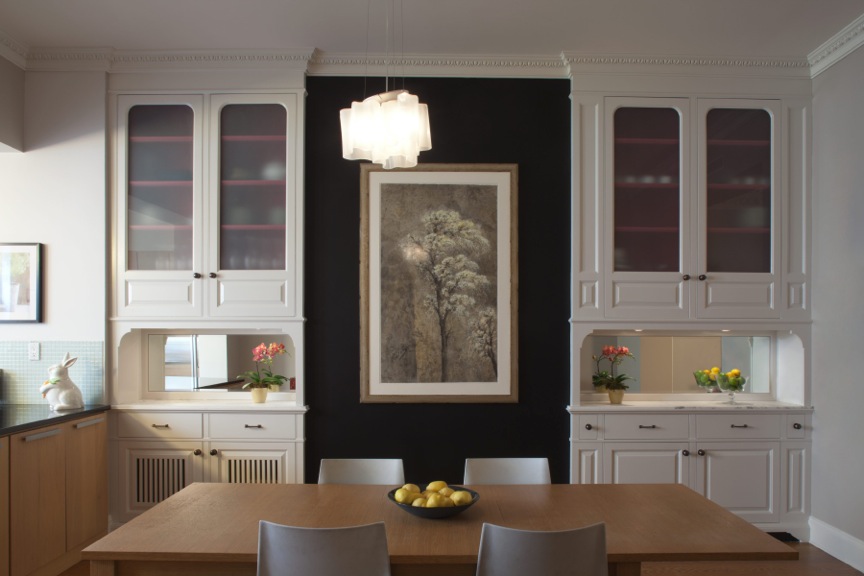
The Insider, Brownstoner’s weekly in-depth look at interior design and renovation in Brooklyn, is written and produced by Cara Greenberg. Find it here every Thursday at 11:30.
BROOKLYN HOUSES are often woefully short on closets, so creating storage is high on many people’s to-do lists. But where to go for built-in cabinetry that is well-designed, well-built, good value, in keeping with existing architecture, and capacious enough to accommodate all the spoils of our material culture?
Enter Nastasi Vail, a Brooklyn-based design team who’ve made a specialty of custom built-ins. Their unique cabinetwork is designed to meld with a 19th century home’s character, while providing ample storage space for books, dishes, wine, and what-have-you, along with all the media, electronics, and other toys the Victorians never had.
In this post, there are three examples of Nastasi Vail’s clutter-banishing built-ins, all in Cobble Hill and all constructed by Alex Luchynskyi of A Royal Builder (201/694-8907, aroyalbuilder@yahoo.com).
- A pair of dining room cabinets on the parlor floor of a brownstone, with striking red interiors, above
- A wall in the entry foyer of a prewar apartment, with drop-down desk fronts and yellow interior
- A dining room piece in a one-family row house, with furniture-like details
David Nastasi’s and Kate Vail’s design fee is $135/hour; construction costs run $1,100-1,500 per linear foot (assuming an 8-9’ ceiling), depending on the level of complexity. Their built-ins are made of solid hardwood and MDF (medium-density fibreboard), with wood moldings.
See it all after the jump.
Photos: Ken Hild
The dining room, below, in the center of a parlor floor, “was a blank slate,” David Nastasi says. “Someone had stripped the fireplace out. There were no cornices, no ceiling medallion. We thought we would create a kind of false history, give the room some architecture.”
A curved detail in a downstairs entry door was picked up and used in the frosted-glass cabinet doors, below. Mirrored panels between upper and lower cabinets increase reflected light in the windowless room by day, and reflect the glow of candles at night. There’s a radiator hidden behind the lower cabinet doors on the left side of the chimney breast.
Nastasi Vail painted the insides of the cabinets Farrow & Ball’s Rectory Red for a burst of color when you open the doors. “We love surprises. We wallpaper the insides of closets if someone will let us.”
In the entry foyer of a pre-war apartment, below, Nastasi Vail created an all-purpose unit with drop-down fronts for a laptop and sewing machine. The design of the paneling mimics the building’s front door, which has what Nastasi calls an “Eastlake Victorian” feel.
In the dining room of a tiny row house, below, a Nastasi Vail built-in with footed base, Gothic-inspired three-point arch, drop pulls, and glossy wood counter top feels like a freestanding piece of furniture. There’s storage for wine and a stereo system, with a slide-out panel for the turntable.
To catch up with previous installments of The Insider, go here.

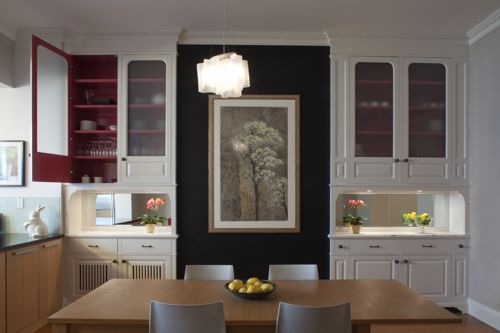
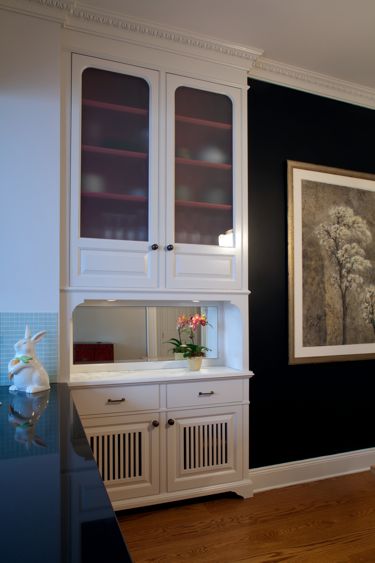
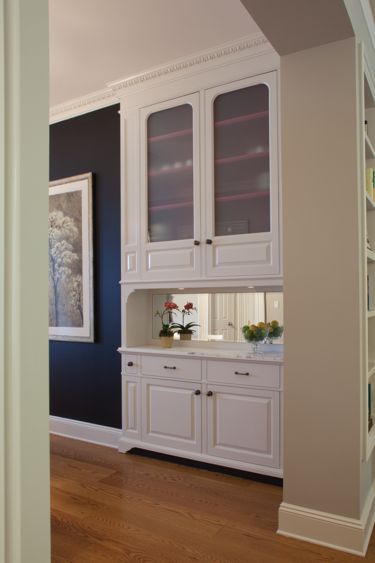
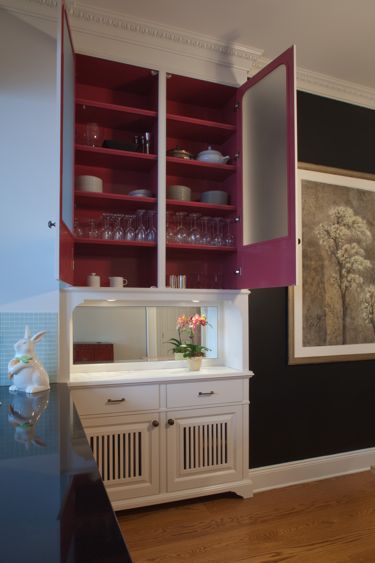
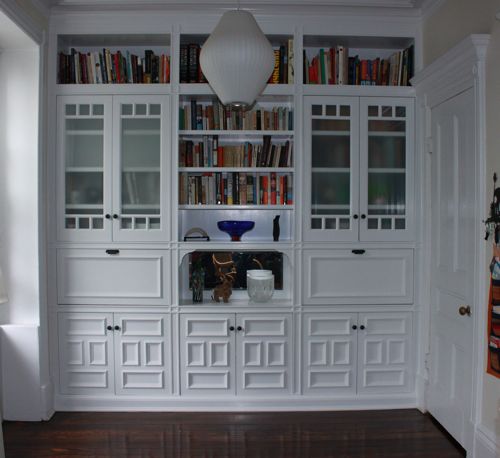
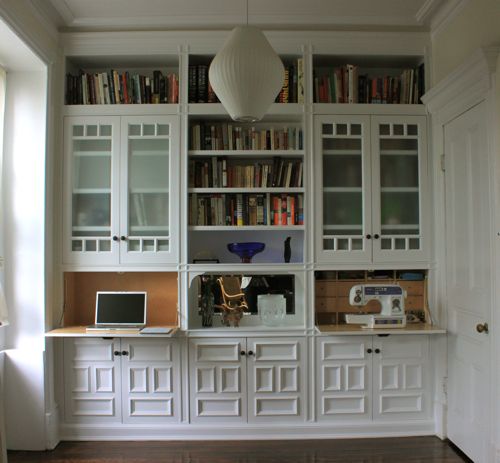
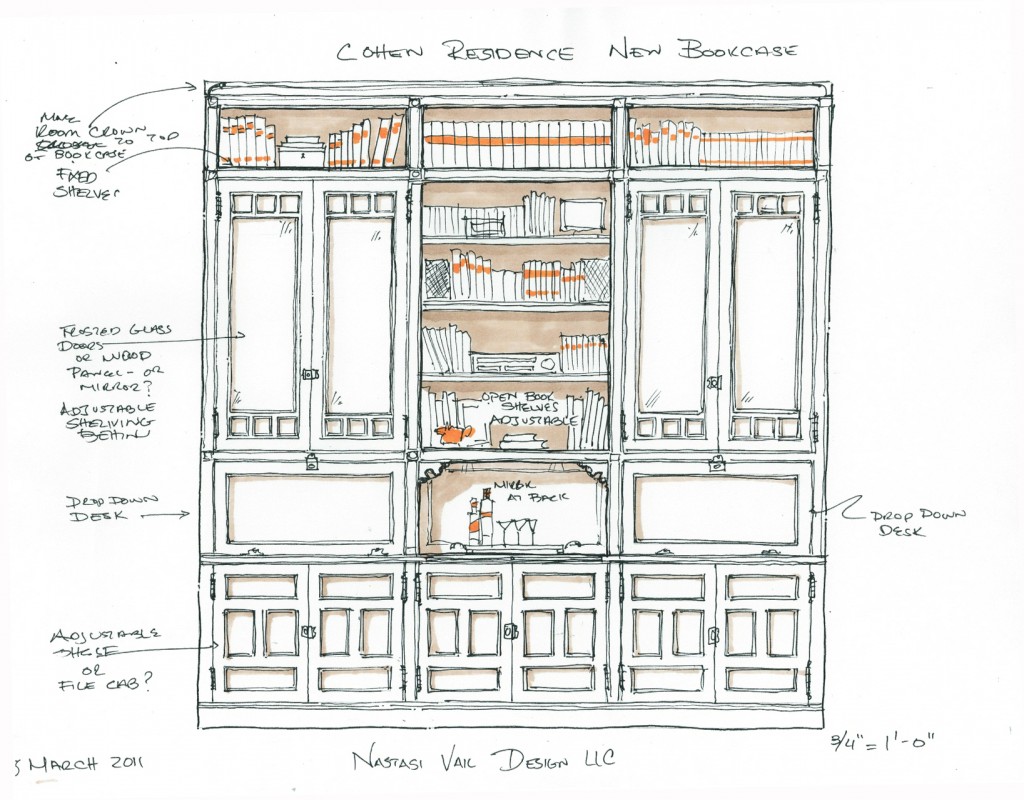
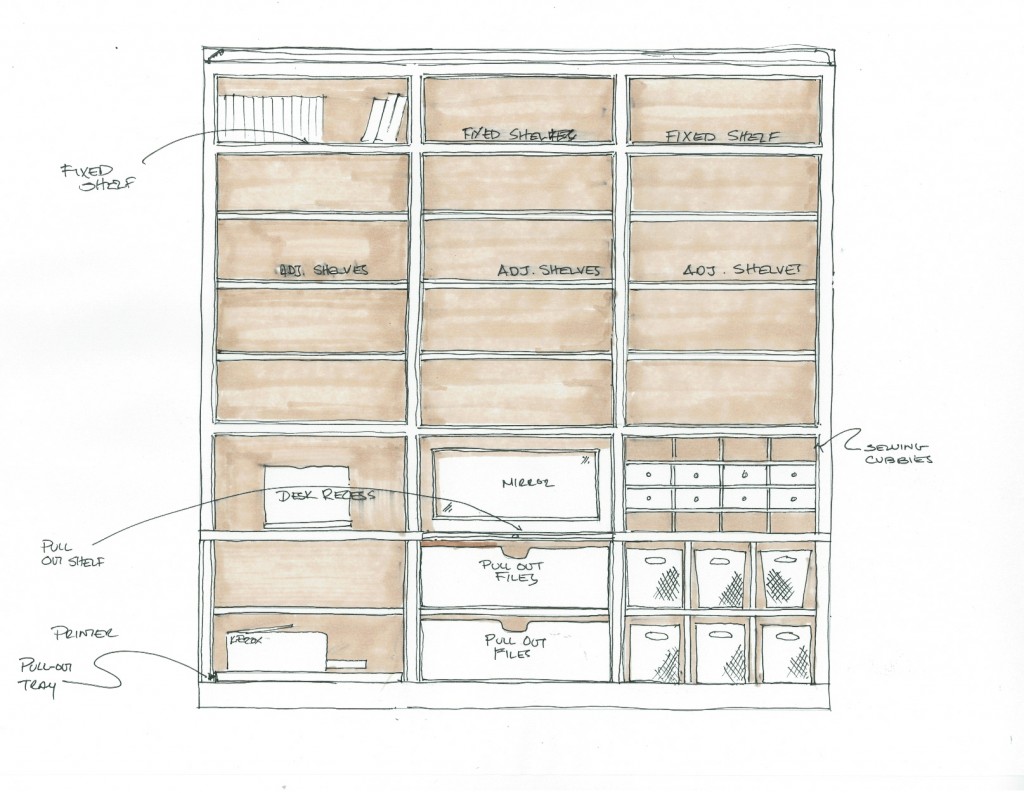
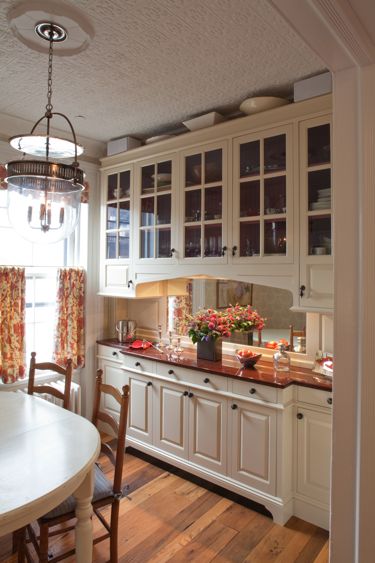
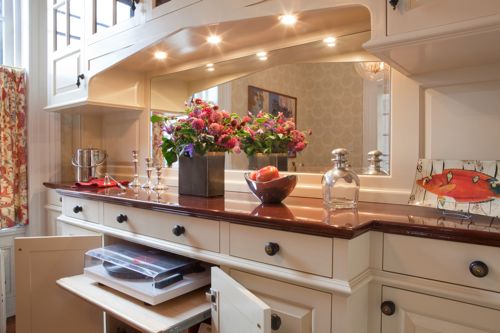
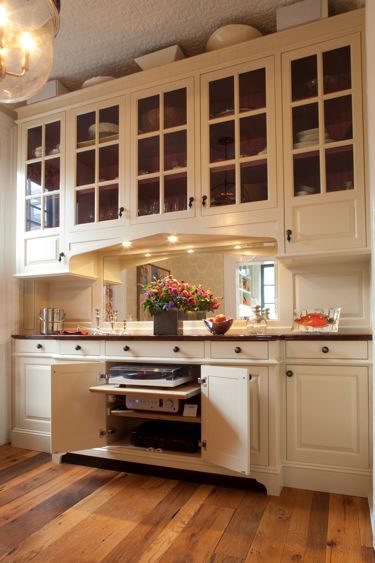
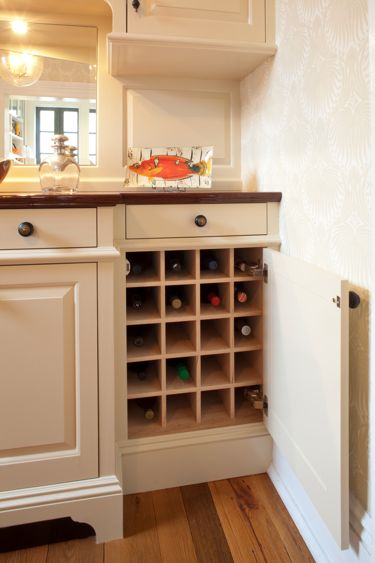
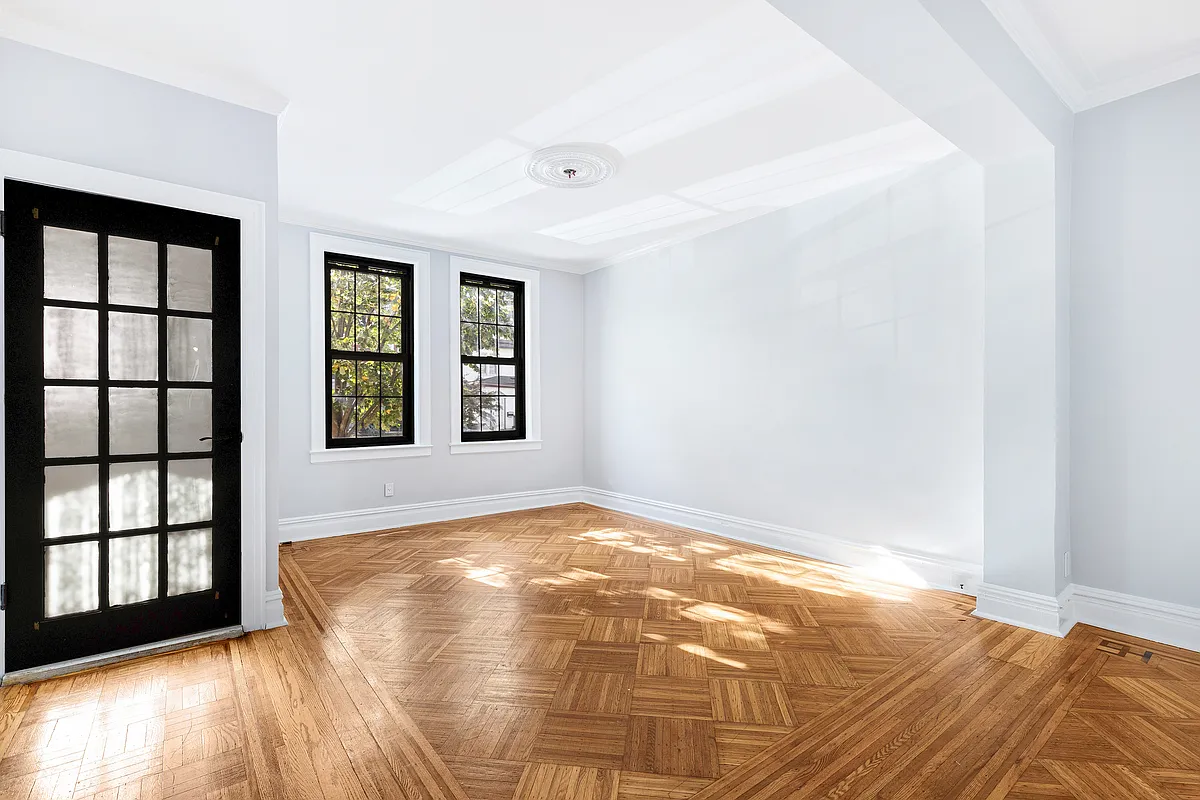
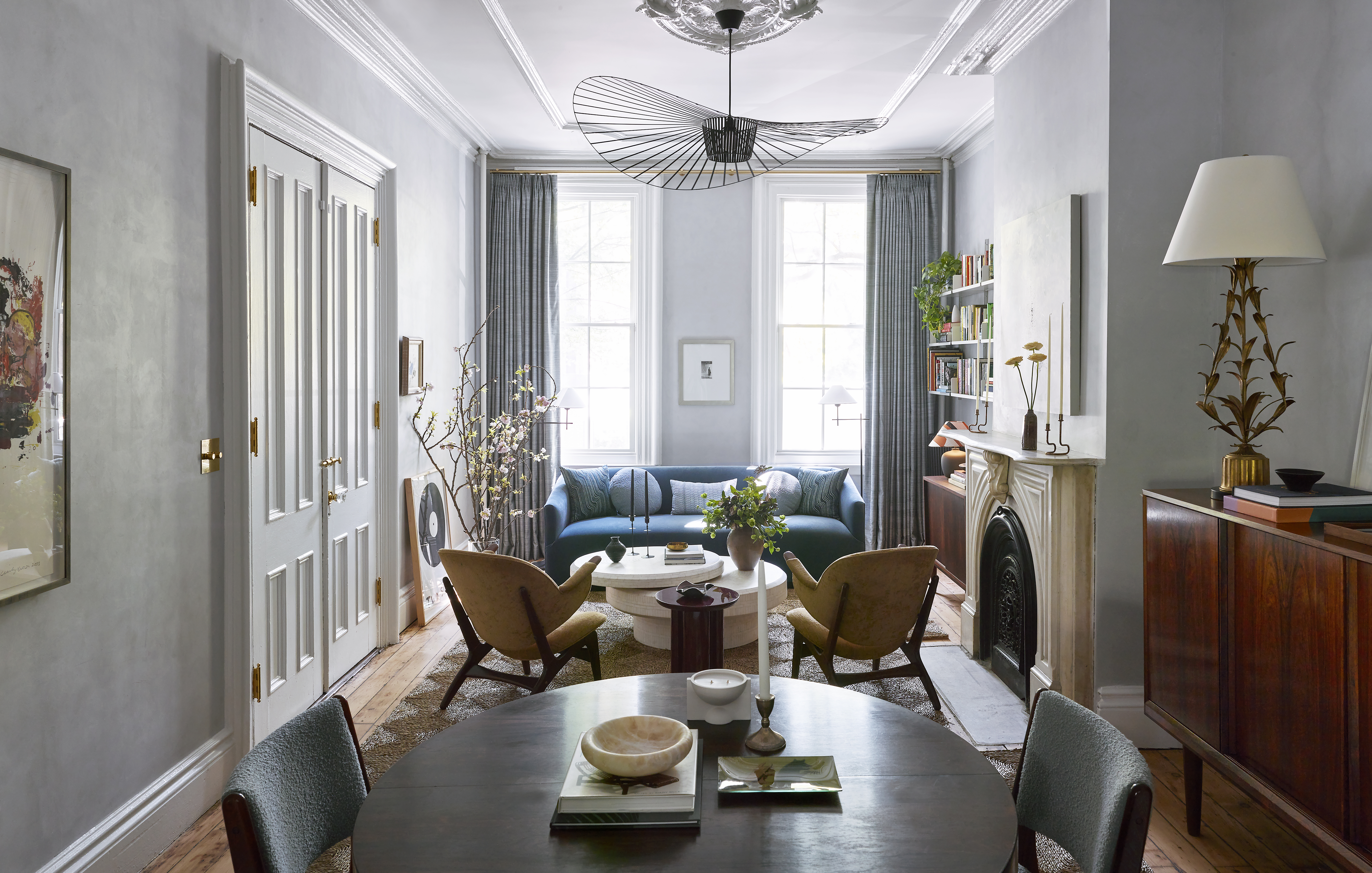
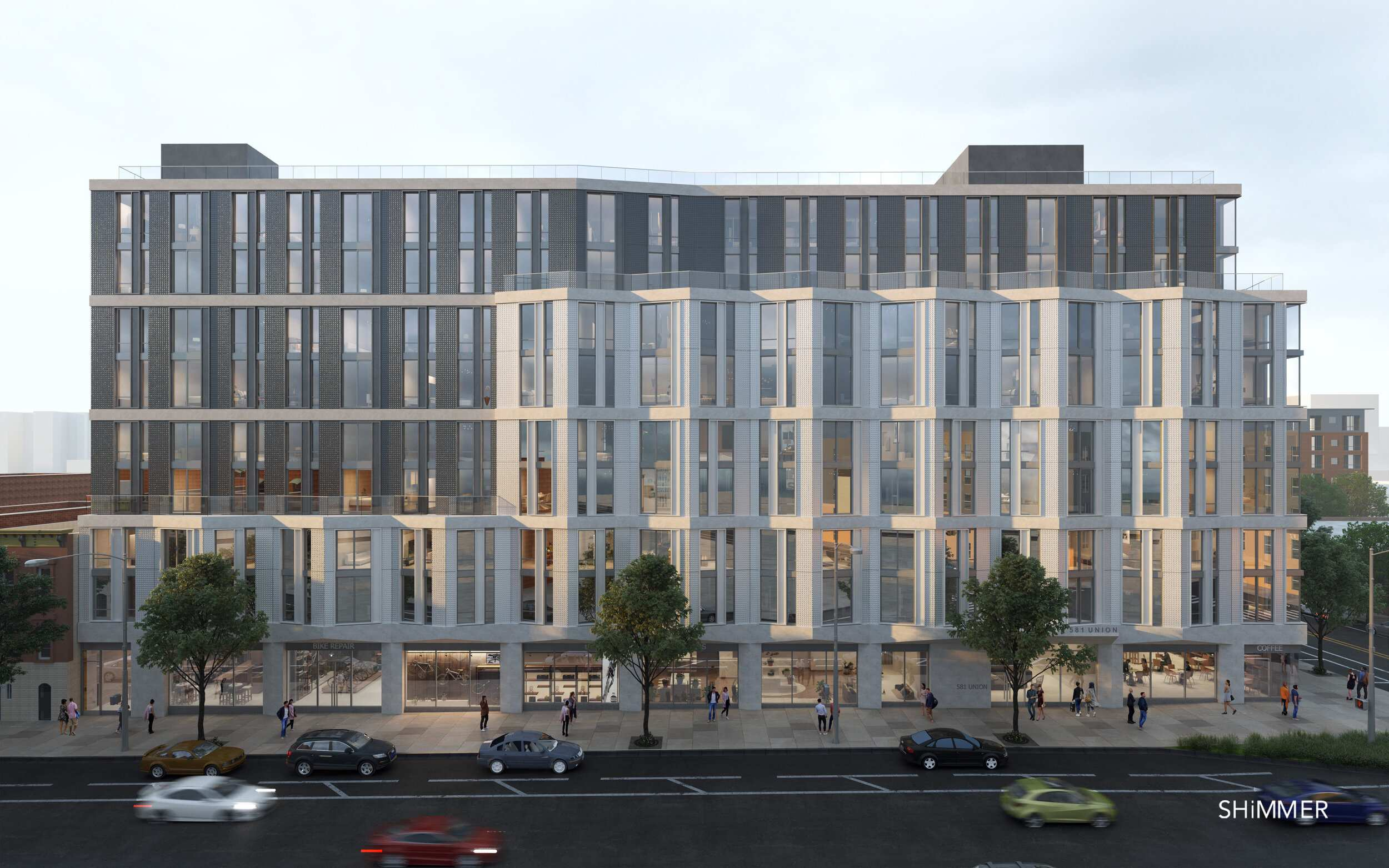
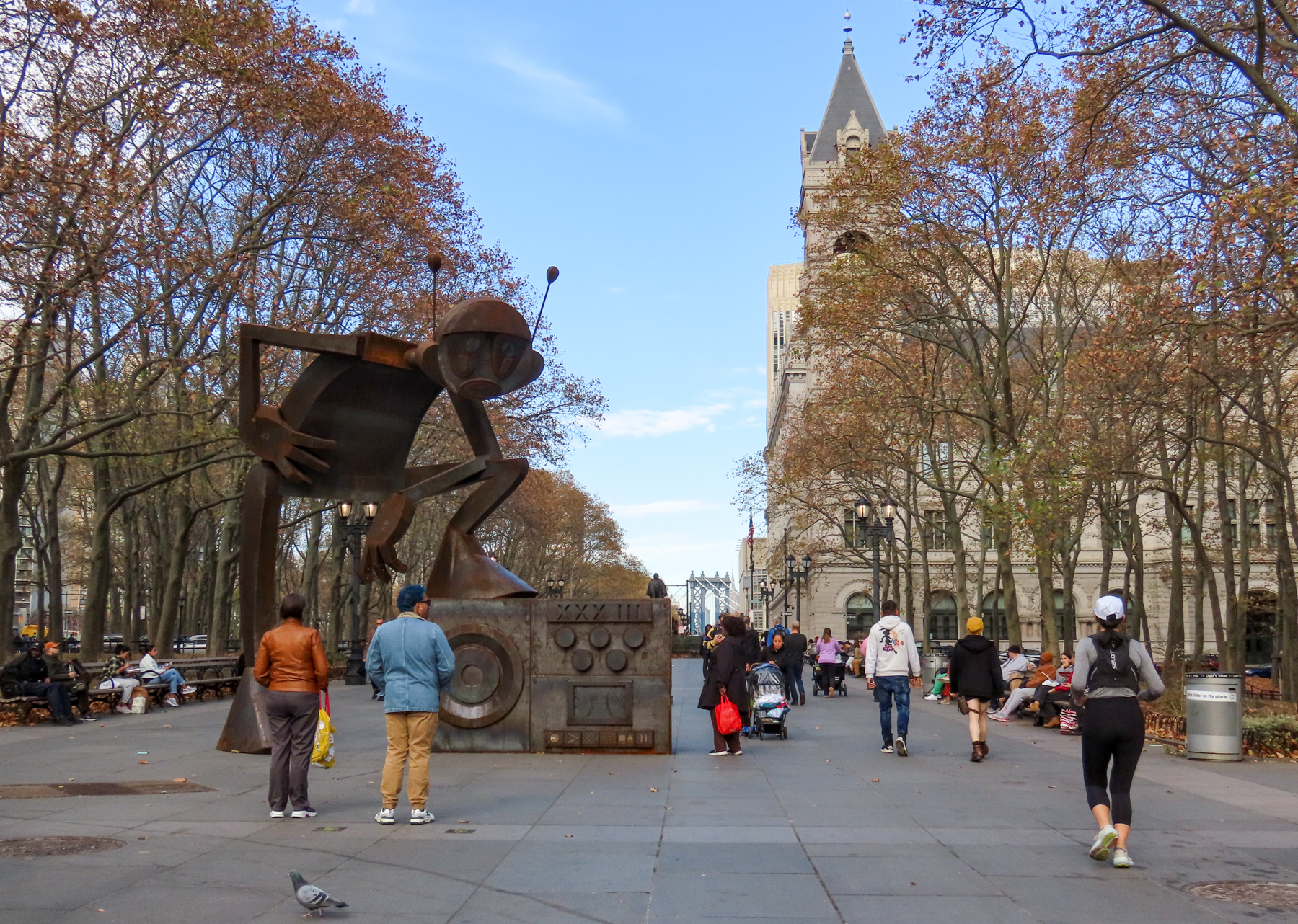
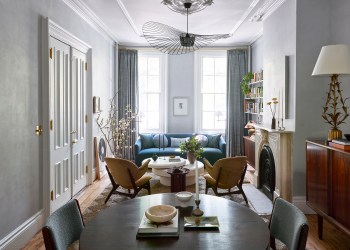
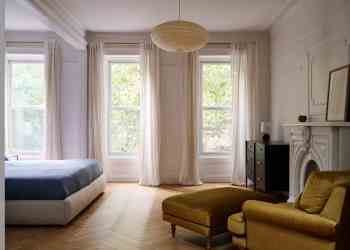


What's Your Take? Leave a Comment